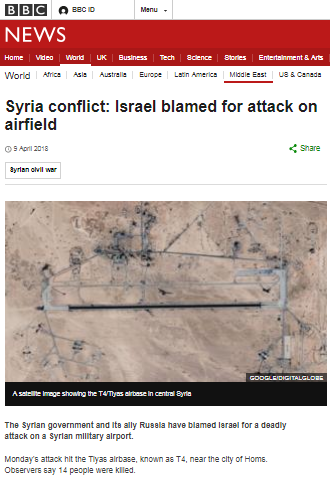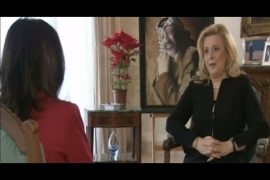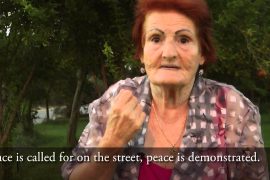Since late last July BBC audiences have seen and heard numerous reports on the topic of health services in the Gaza Strip that have focused on portraying pressures on the system. For example:
November 2018, Tom Bateman:
“This is a conflict that has changed even more lives this year. Thousands of Palestinians in Gaza have suffered bullet wounds during protests at the perimeter fence with Israel. It has put intense pressure on Gaza’s hospitals.”
January 2019, Mishal Husain:
Mohammed Abu Mughalseeb of Medecins Sans Frontiers:
“From my experience I think the…you know, from some friends and colleagues in United Kingdom and in France and United States, if they had the same number of injuries received in the emergency department the health system would collapse. No other places in the world can cope with this, with this huge number of injuries.”
On March 29th a report by Tom Bateman that was filmed at a MSF-run rehabilitation centre in the Gaza Strip which Bateman had previously visited last summer appeared on the BBC News website’s Middle East page under the title “Gaza’s disability crisis”.
“Saturday 30 March marks a year since Palestinians began protesting at Gaza’s perimeter fence with Israel.
As the anniversary looms, tensions and military activity on the boundary have been ratcheting up.
According to UN-published figures, in the last year more than 7,000 Palestinians have been shot by the Israeli military, and more than 190 killed.
Last summer, an Israeli soldier was shot dead by a Palestinian gunman.
Israel justifies the use of live ammunition saying it has defended its soldiers and civilians from violent attacks.” [emphasis added]
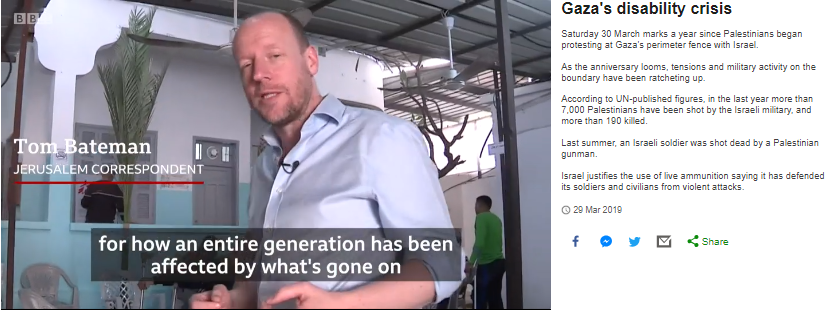
The report begins:
“These men are in a physical therapy clinic in Gaza.”
Bateman: “Every time you come to one of these clinics, you just get such a feel for how an entire generation has been affected by what’s gone on over the last year. There is a crisis of disability in Gaza now and this clinic where they’re treating people for long-term care, treating bullet woulds, rehabilitation, they still have 200 people coming through their doors every day.” [emphasis added]
With no effort made to clarify to BBC audiences that “what’s gone on over the last year” is the product of decisions made by Hamas and other terrorist groups in the Gaza Strip, the film goes on to showcase familiar messaging from another MSF representative.
Carla Melki: “Actually I will say there is not one of the health systems in the world even in the best, important capital of western parts that will be able to face this amount of injuries. When we get 1,200 gunshot injuries in a few hours any health system would collapse. So on top of it, yes, Gaza’s health system is already pressured. There are not, for example, enough beds for the total population. So obviously the system is not collapsing but it is really under pressure.”
Viewers are then told that:
“Some 7,000 Palestinians were hurt by Israeli bullets in the last year. More than 190 have been killed. Israel says it has acted legitimately to protect its civilians from violent attacks at the border.”
The film closes with a monologue from a person identified as Hashim Abu Maneeh.
Abu Maneeh: “They shot me, they fired an explosive bullet. It broke seven centimetres of my bone. So far I’ve had 11 surgeries, I couldn’t walk for 11 months, couldn’t stand. That can really affect someone.”
Once again we see that while the BBC readily quotes the numbers of Palestinians killed and injured in what it has for an entire year been misrepresenting as “protests”, audiences are yet again denied a view of some of the other statistics necessary for full understanding of this story.
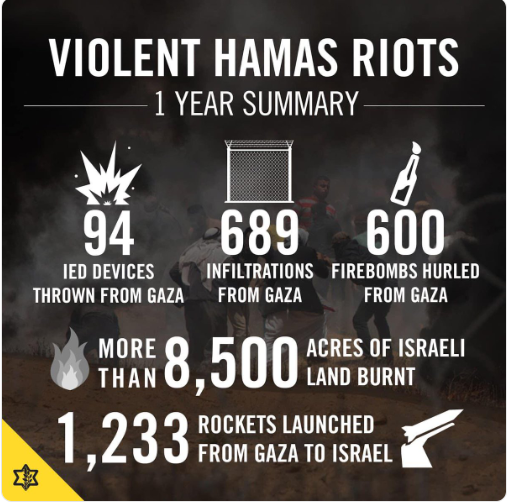
And yet again we see Bateman making no effort to clarify to BBC audiences that the “crisis of disability” he portrays could have been avoided had Hamas (which is of course also in charge of the health system described as “already pressured”) not initiated, encouraged, facilitated and financed this particular terror project dubbed the ‘Great Return March’.
Related Articles:
A context-free ‘Today’ report from the BBC’s Paul Adams in Gaza
BBC radio audiences get whitewashed picture of youth participation in Gaza riots
BBC Gaza ‘documentary’ makes no pretence of impartiality
BBC tries to erase Hamas’ role in ‘Great Return March’ violence
More of the same Gaza framing from a BBC Jerusalem correspondent
‘News at Ten’ continues the BBC’s ‘blockade’ campaign
Former ISM activist medic reappears in BBC Radio 4 ‘Today’ show

